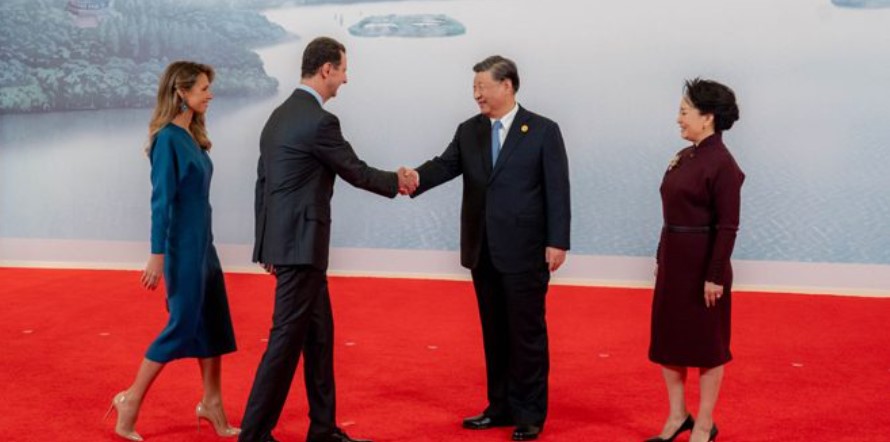Despite the extensive media coverage that the Assad regime and its affiliated Lebanese media attempted to generate regarding President Bashar al-Assad’s visit to China and the signing of what they described as “strategic” cooperation agreements, the practical implications on the ground may not be as promising for both parties.
For the Assad regime, the primary objective of this visit is to seek economic support and investments, as it already enjoys political backing from China. China has consistently supported the Assad regime politically, aligning itself with Russia in international forums and using its veto power several times in the UN Security Council to block resolutions against the Syrian government. However, it remains unclear where the economic support from China will be allocated within Syria. After 12 years of conflict that has left the country in ruins, Syria’s resources have largely been allocated to Russian and Iranian allies. With little left to offer, the Assad regime may find it challenging to provide China with a meaningful return on its investments.
President Assad Highlights China’s Global Role and Emphasis on Partnership
Furthermore, investing in Syria poses several challenges. The economic feasibility of such investments is questionable, considering Syria’s claims of being a bankrupt nation and a population that largely lives below the poverty line, relying on foreign aid. Additionally, US and European sanctions on the Assad regime could deter Chinese companies from engaging in projects that violate these sanctions, potentially leading to significant damage.
In terms of economic exchange, Syria has little to offer China apart from agricultural products, which would incur higher costs due to the considerable distance between the two countries. These quantities of agricultural products are unlikely to be significant for a nation with a population of 1.5 billion.
Regarding Syria’s participation in China’s “Belt and Road Initiative,” the country’s role in the initiative remains marginal. Syria’s position in the initiative is further complicated by financial, political, and geostrategic challenges associated with the initiative. The route passing through Syria and Lebanon has faced interruptions and objections in previous stages, and the initiative’s dependence on soft loans from China raises concerns about potential debt burdens on participating nations.
In conclusion, the high hopes placed on China by the Assad regime may be more of an illusion than a reality. Syria’s economic and political challenges, coupled with the complexities of international sanctions and China’s own strategic considerations, make it unlikely that China will serve as the saviour the regime portrays to its domestic audience. The regime’s focus appears to be on its own survival in power, rather than addressing the needs of the Syrian people or attracting substantial foreign investment.
This article was translated and edited by The Syrian Observer. The Syrian Observer has not verified the content of this story. Responsibility for the information and views set out in this article lies entirely with the author.


